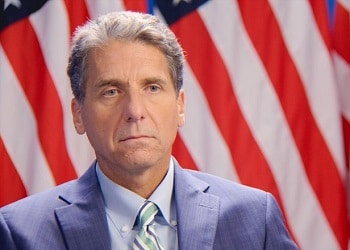The US ambassador to Colombia publicly aired his country’s main grievances with regard to Colombia’s peace agreement with the FARC guerrilla group, adding to growing pressure from the United States over the historic deal.
“The FARC have not complied, in my opinion, with their obligations under the agreement,” US Ambassador to Colombia Kevin Whitaker said during a recent interview with El Tiempo.
Echoing earlier comments by other US officials, Whitaker argued that the Revolutionary Armed Forces of Colombia (Fuerzas Armadas Revolucionarias de Colombia – FARC) continue to encourage coca cultivation in certain areas of the country, and said that the demobilized rebel group should not be involved in government efforts to implement crop substitution programs for coca farmers.
While he said the United States recognized Colombia’s efforts to eradicate coca, the ambassador insisted that the Andean country do more.
“It’s arithmetic: more coca, more cocaine; more cocaine, more security and public health issues in both countries,” Whitaker said.
In addition, the ambassador said that “the FARC need to give information concerning drug trafficking for investigations to be opened,” arguing that this process, stipulated in the peace accords, “has not occurred.”
Whitaker also tied the FARC’s willingness to provide information on drug trafficking to the group’s status as a US-designated terrorist organization. He said the US decision to take the FARC off the blacklist would be based only on concrete acts showing that the group complied with the peace agreement.
InSight Crime Analysis
Whitaker’s comments are part of a pattern of the United States putting increasing pressure on Colombia with regard to the peace agreement, which US officials have blamed in large part for an increase in Colombian cocaine production in recent years. But this pressure so far has not helped to advance the peace process; rather, it has caused rifts in the crucial US-Colombia security relationship.
The implementation of the peace agreement is a delicate process. Certain measures, such as the handing over of weapons by the FARC, were priorities for which the accords set a defined timeframe. Such is not the case with the FARC’s obligation to divulge information concerning the cocaine trade. The FARC have not complied with this provision simply because the process has not yet reached the stage of building complicated judicial cases based on FARC revelations and cooperation with prosecutors.
SEE ALSO: Coverage of FARC Peace
As InSight Crime reported last year, the Colombian government has asked the United States to remove the FARC from the terrorism blacklist in order to build confidence in the peace process among the demoblized guerrillas. However, Whitaker’s comments suggest that the United States will be reluctant to take such a step unless the Colombian government can make concessions on the drug issue, which has become a major sticking point from the perspective of US officials.

